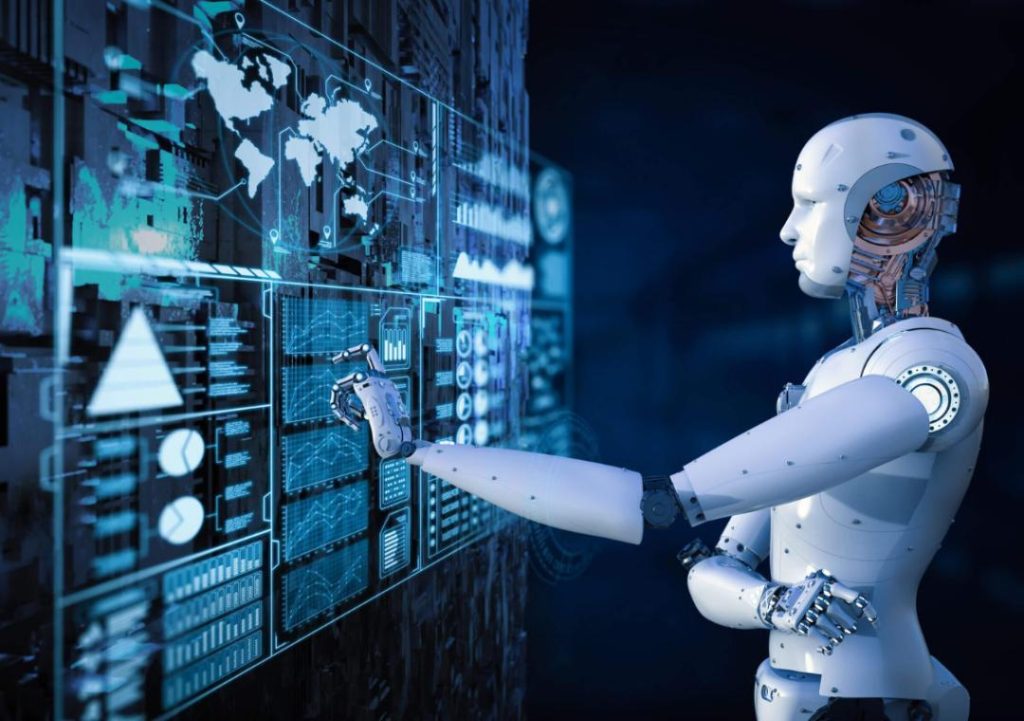
AI & Automation: The Productivity Power Duo
In today’s fast-paced business landscape, companies are constantly seeking ways to streamline operations, reduce costs, and increase productivity. Two technologies that have gained significant attention in recent years are Artificial Intelligence (AI) and Automation. While AI is capable of processing vast amounts of data and making complex decisions, Automation is all about freeing up human resources by handling routine and repetitive tasks. When combined, AI and Automation become an unstoppable duo, revolutionizing the way businesses operate and redefining efficiency across industries.
The Rise of RPA and AI
Robotic Process Automation (RPA) has been around for over a decade, but its popularity surged in the past few years as companies began to recognize its potential to automate repetitive and mundane tasks. RPA software mimics human actions, such as data entry, document processing, and customer service, by interacting with applications and systems. This allows businesses to free up human resources for more strategic and creative work, reducing the risk of human error and increasing productivity.
AI, on the other hand, has been a hot topic in recent years, with its applications spanning from natural language processing to predictive analytics. Machine learning, a subset of AI, enables machines to learn from data and make decisions without human intervention. When combined with RPA, AI takes automation to the next level by enabling bots to learn from their experiences and adapt to new patterns.
The Power of Intelligent Automation
Intelligent Automation, the marriage of RPA and AI, is the ultimate game-changer for businesses. By integrating AI-powered machine learning with RPA, companies can automate complex decision-making processes, freeing up human teams to focus on high-value tasks.
Here are some benefits of Intelligent Automation:
- Faster Transactional Work: With AI-powered bots handling routine tasks, companies can process transactions faster and more accurately, reducing the risk of human error and increasing customer satisfaction.
- Adaptive Processes: Machine learning enables bots to learn from their experiences and adapt to new patterns, allowing processes to evolve and improve over time.
- Human Team Focus: By automating routine tasks, human teams can focus on strategic and creative work, increasing productivity and job satisfaction.
- Cost Savings: Intelligent Automation reduces the need for human labor, leading to significant cost savings and increased profitability.
Industry-Specific Use Cases
Intelligent Automation is not limited to any specific industry. Here are some examples of how AI and Automation are transforming the way businesses operate:
- Healthcare: AI-powered bots can automate patient data entry, claims processing, and medical billing, freeing up healthcare professionals to focus on patient care.
- Finance: Intelligent Automation can automate financial transactions, such as account reconciliations, invoice processing, and compliance reporting, reducing the risk of human error and increasing accuracy.
- Customer Service: AI-powered chatbots can provide 24/7 customer support, answering routine queries and escalating complex issues to human representatives.
- Manufacturing: AI-powered bots can automate production planning, quality control, and inventory management, improving efficiency and reducing waste.
Challenges and Opportunities
While Intelligent Automation holds immense potential, it’s not without its challenges. Some of the key challenges include:
- Data Quality: AI relies on high-quality data to make accurate decisions. Poor data quality can lead to inaccurate predictions and flawed decision-making.
- Change Management: Implementing Intelligent Automation requires significant changes to business processes and human workflows, which can be challenging to manage.
- Cybersecurity: As AI and Automation integrate with sensitive systems, companies must ensure robust cybersecurity measures are in place to prevent data breaches and cyber attacks.
Despite these challenges, the opportunities presented by Intelligent Automation are vast. As companies continue to adopt AI and Automation, we can expect to see significant improvements in productivity, efficiency, and customer satisfaction.
Conclusion
AI and Automation are the ultimate productivity power duo, revolutionizing the way businesses operate and redefining efficiency across industries. By integrating AI-powered machine learning with RPA, companies can automate complex decision-making processes, freeing up human teams to focus on high-value tasks. As companies continue to adopt Intelligent Automation, we can expect to see significant improvements in productivity, efficiency, and customer satisfaction.
Source: https://www.growthjockey.com/blogs/intelligent-automation






